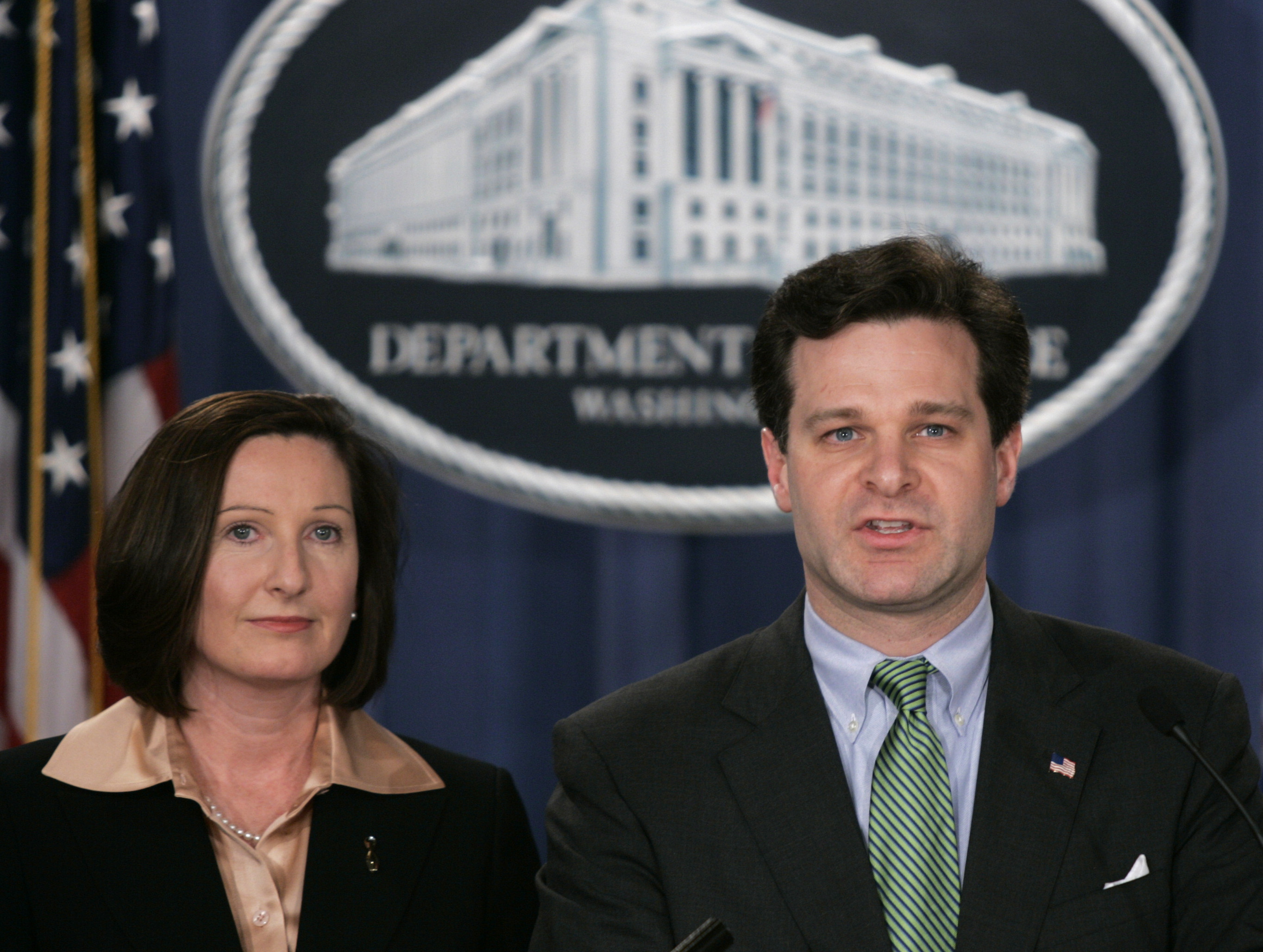Christopher A. Wray, whom Donald Trump picked to replace ousted James Comey as the FBI director, begins his confirmation hearings in the Senate on Wednesday morning.
If the Senate confirms him, Wray would replace Comey, who was fired by Trump in May. He would also, if confirmed, oversee the investigation about Trump’s connection to Russia while overseeing the country’s highest intelligence branch. You can watch the hearing before the Senate Judiciary committee starting at 9:30 a.m. ET.
Wray, who attended Yale University for undergraduate and law school, was nominated by then-President George W. Bush to be the assistant attorney general in the Justice Department’s Criminal Division. He served in that position from 2003 to 2005.
It’s possible that, during the hearing, the committee will ask Wray to affirm his position as an independent official and clarify whether he has ever expressed loyalty to Trump. Comey alleged the president asked him to pledge his loyalty, an accusation Trump has refuted.
"Chris looks for the way that creates the least drama," John Richter, an attorney who worked with Wray at his legal firm, told the Wall Street Journal.
Wray began his career in public service clerking for Judge J. Michael Luttig on the US Fourth Circuit Court of Appeals in 1992. Luttig's judicial philosophy was similar to that of Supreme Court Justice Antonin Scalia.

In 1993, Wray left the public sector and began working in private practice in Atlanta. Four years later, he joined the Justice Department once again to work in the US Attorney's Office for the Northern District of Georgia. In 2001, he began working for the main division of the Justice Department as an associate deputy attorney general. He eventually became the principal associate deputy attorney general.
In 2004, Wray was among the top Justice Department officials, including Comey and then-FBI Director Robert Mueller, who threatened to resign after the Bush administration tried to bring back the National Security Agency's domestic surveillance program that the organization found illegal.
Mueller is now serving as a special prosecutor leading an independent probe into the Trump campaign's ties to Russia, which now reportedly includes investigating Donald Trump Jr., who met with a Russian lawyer seeking opposition research during the campaign.

Following his service at the Justice Department, which ended in 2005, Wray went back to private practice and specialized in white-collar investigations. He is now a partner at the law firm King & Spalding, and he represented Gov. Chris Christie of New Jersey during the Bridgegate trial in which two of the governor's former aides were found guilty of scheming to shut down gates on the George Washington Bridge to retaliate against a Democratic mayor.
Throughout his career in private practice, Wray also defended Fortune 100 companies embroiled in various investigations. Wray donated thousands of dollars to exclusively Republican candidates throughout his career, and he now works closely with Bobby Burchfield, Trump's ethics adviser.

With Republicans in the majority, he's expected to sail through the confirmation process. Democrats haven't expressed widespread opposition.
Wray's nomination is a "safe, mainstream pick from a president who at one point was considering politicians for a job that has historically been kept outside of politics," The New York Times said after Trump made his announcement.
A former high-ranking FBI official told CNBC's Eamon Javers that Wray had a "good reputation" and was "confirmable" but that it was a "big job for someone with his level of large organizational, leadership, and management experience" and that there would be a "big learning curve."

